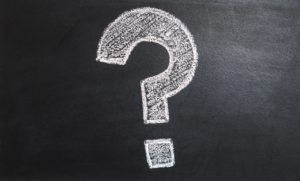 An IPA Source customer asks:
An IPA Source customer asks:
It seems double consonants are not indicated in the IPA for Die Forelle. Am I missing something?
Please clarify.
Bard answers:
Unlike Italian, German (like French) does not stress double consonants except for expressive reasons. In French, doubles are not pronounced excepted for words like immense where both mm’s are sounded. The double -mm expresses the feeling of vastness. The expressive doubles are a part of standard pronunciation in French and are always noted in dictionaries and in our transcriptions.
German is a bit different in that in standard speech and in singing from amateur choirs (Leien Chöre) doubles are generally sounded. In “classical” singing, the tradition is not to stress doubles except for overwhelming expressive reasons, and then only at the taste of the singer. Generally, one does not sing strong double consonants in Wellen [’wɛl.lən] or Mutter [’mʊt.tɐ] but rather [’wɛ.lən] and [’mʊ.tɐ]. Instead of singing double consonants, their presents is indicated by the open vowel. In our texts all double consonants will be transcribed as single consonants. This is also keeping with standard transcription practices for German and exactly how you will find IPA transcriptions in dictionaries and from other authorities on German Lyric diction (Castel, Glass, etc.).
I just looked through the Die Forelle text to see if there were any instances of the expressive use of the double consonants. Words like helle, Forelle, and Quelle should be pronounced with single consonants in all cases. However, the words Wasser and zappelt might be handled differently. To express the sound of the splashing water, one might double the -s. Likewise, in zappelt, the -p could be doubled to illustrate the fish flapping about on the fishline. These expressive use of double consonants in singing should never be dictated and are always a matter of taste and should reflect the emotional choice of the singer who has a good feeling for the meaning of the language.
There are a few other points that might be added to this discussion about vowel length in singing – for example, how we differentiate between the words staat [ʃta:t] and statt [ʃtat] when length is dictated by the notation, but I’ll leave that for another time.
Thanks for your question. I hope this helps.
